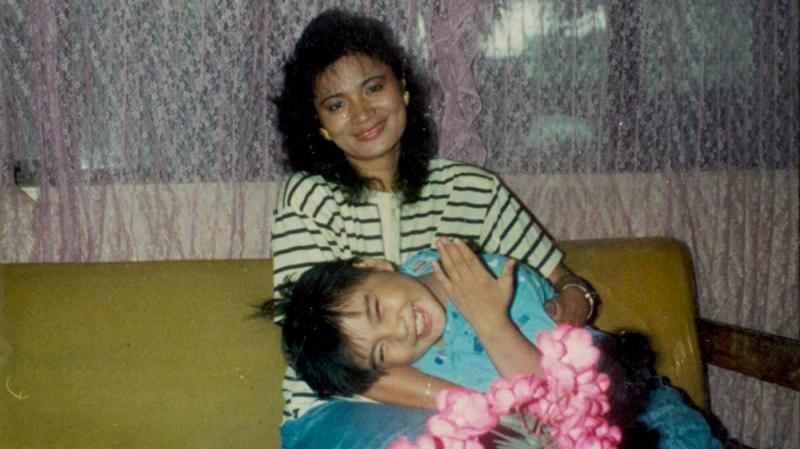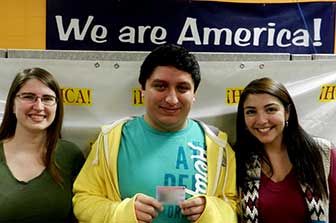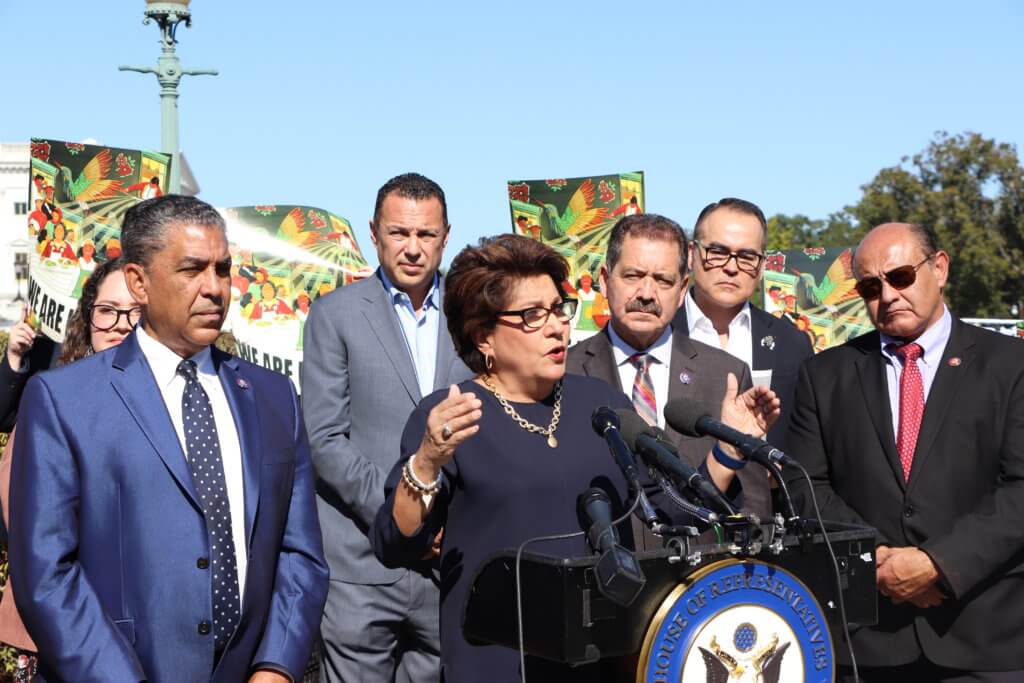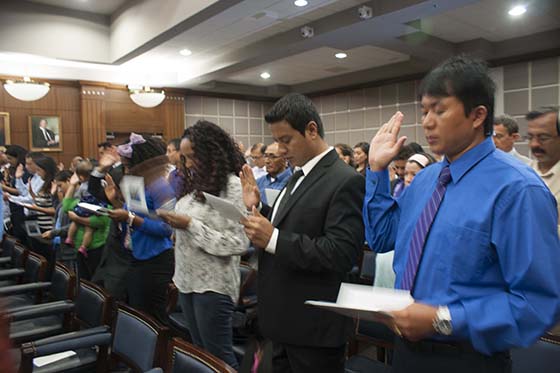José Antonio Vargas film “Documented”: A Riveting Personal Journey
By Patricia Foxen, Ph.D., Deputy Director of Research, NCLR

Last month I was invited to attend the New York City premiere of José Antonio Vargas’s documentary “Documented,” which will be airing this Sunday, June 29, on CNN at 9 PM ET. Along with the rest of the audience, I was moved to tears by this beautifully crafted and extraordinarily honest film. In Vargas’s own words, his primary goals in making the film were “to expand the conversation around immigration and citizenship in a demographically changing America.” It is difficult to imagine that anyone — no matter where they stand on the immigration question — would not be transformed by this profoundly human story.
Vargas’s name catapulted onto the national scene back in 2011 when he “outed” himself as an undocumented immigrant in a widely-read New York Times Magazine article. As a Pulitzer Prize-winning journalist who had previously worked for the Washington Post, he became a leading voice shaping discussions around Comprehensive Immigration Reform, in particular by working closely with the Dreamers and his own campaign, Define American, always aware that his undocumented status could lead to deportation at any moment, as it has for tens of thousands of undocumented immigrants over the past few years.
In “Documented,” Vargas is both the storyteller and the primary subject of his own film– a balancing act that might have been difficult with a less charismatic and energetic narrator, but which Vargas pulls off well. He takes us through his personal story, in which he migrated from the Philippines to the U.S. at age 12 to live with his grandparents, only to find out as a teenager that he did not have legal status. Vargas brings us into the lives of his family members scattered across borders, including his mother in the Philippines, whom he has not seen for 20 years, and his Lola (grandmother) and other relatives in the States. The different themes of his life — his decision to come out as both gay and as undocumented, his launch into the world of advocacy, and his very personal and complex relationship with his mother — are all revealed and connected seamlessly through Vargas’s admirable storytelling skills.

In recounting this personal story, Vargas skillfully sheds light on the broader story of undocumented migrants, and on the pain and vulnerability of the millions whose status is perpetually in limbo and who are physically and emotionally separated from their loved ones. He makes sure to explore some of the root causes of migration, which compel people to leave home, as well as the elements of our own broken immigration system that simply exclude broad swathes of immigrants from obtaining legal status.
The release of this film this weekend on mainstream television is timely: in the midst of current pessimism over the plight of immigration reform– reinforced by misinformation being spread around the recent increase in unaccompanied minors — this film will re-center audiences on the core human issues behind our broken immigration system, and the increasingly urgent need to fix it, soon.
Define American has teamed up with NCLR and 36 other Watch Partners including GLAAD, MTV, Moms Rising, Anti-Defamation League and others to encourage viewing parties around the broadcast premiere of the film “Documented.” Watch party hosts are registering online and watch parties are also being monitored and mapped at.


